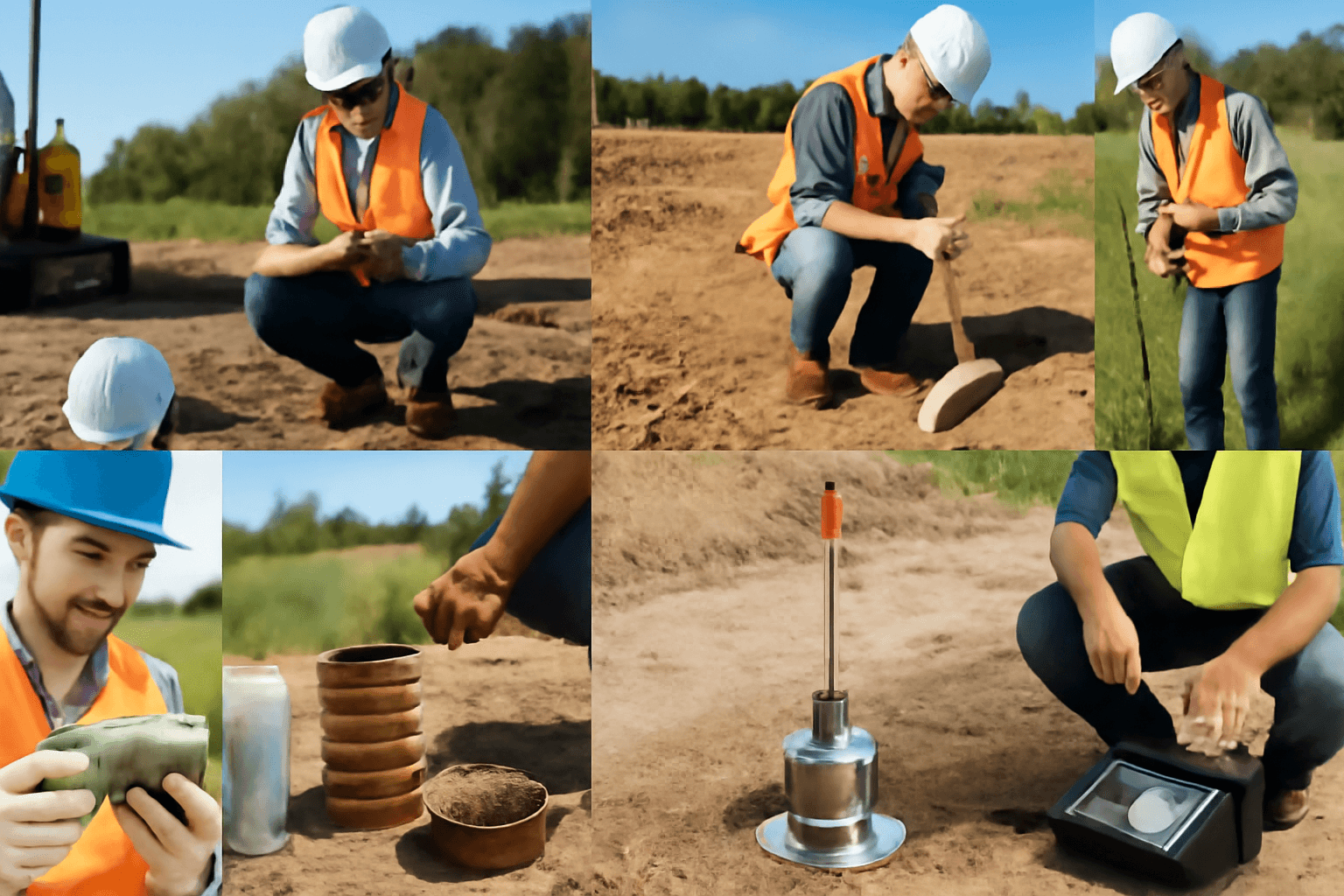Geotechnical Investigation
At United Hawk Lab, we specialize in providing comprehensive Geotechnical Investigation services designed to assess the soil, rock, and groundwater conditions of a site. This critical phase in construction and infrastructure projects ensures that structures are built on a solid, stable foundation, reducing the risk of future issues such as settlement, foundation failure, or structural damage. Our geotechnical investigations provide the essential data needed for the design, planning, and construction of safe and sustainable buildings, roads, bridges, and other infrastructure.
Comprehensive Site Assessment
Geotechnical investigations are a fundamental part of any construction project, as they provide detailed information about the subsurface conditions that will affect the design and construction process. At United Hawk Lab, we offer a full range of geotechnical investigation services, which include site exploration, soil sampling, testing, and analysis. Our team of highly qualified geotechnical engineers, technicians, and laboratory specialists use advanced techniques and state-of-the-art equipment to collect and analyze data, ensuring that every aspect of the site’s geology is thoroughly understood.
Key Services We Provide
Site Exploration and Subsurface Drilling
Our geotechnical investigation begins with a detailed site exploration, where we use advanced drilling techniques to collect soil and rock samples from different depths. This process helps determine the geological composition of the site, allowing us to identify the type and strength of the soil, as well as any potential issues such as unstable or loose soil layers.Borehole Drilling
Borehole drilling is an essential part of the site investigation process. By drilling boreholes at strategic locations on the site, we can obtain continuous samples of the subsurface materials. These samples are then tested for various properties, such as moisture content, density, and shear strength. The data collected through borehole drilling enables us to evaluate the bearing capacity of the soil and the potential for settlement, helping engineers design appropriate foundations for the proposed structure.Soil Sampling and Testing
Once soil samples are collected through drilling or other methods, they undergo rigorous testing in our state-of-the-art laboratory. Common tests include:Soil Classification and Grain Size Analysis: Determines the soil’s particle size distribution, which helps in assessing its drainage properties and stability.
Atterberg Limits: Assesses the plasticity of the soil, which is critical for understanding its behavior under different moisture conditions.
Compaction and Shear Strength: Evaluates the soil’s ability to resist compaction and deformation, critical for determining the strength and stability of the foundation.
Consolidation and Permeability Testing: Measures the soil’s response to loading and its ability to transmit water, providing important data for designing foundations that are resistant to settlement and moisture damage.
Groundwater Investigation
Understanding groundwater conditions is vital for evaluating the potential for soil erosion, hydrostatic pressure, or other water-related issues during construction. We conduct groundwater monitoring by installing piezometers or other instruments to measure the level and flow of groundwater beneath the surface. This information is crucial for designing foundations, drainage systems, and preventing water-related damage to structures.Geophysical Surveying
For large sites or areas with complex subsurface conditions, we offer geophysical surveying techniques such as seismic refraction and electrical resistivity tomography. These non-invasive methods allow us to gather data over larger areas and provide valuable insights into the subsurface properties, including the presence of bedrock, faults, and groundwater flow patterns.Geotechnical Laboratory Testing
In addition to field investigations, we conduct extensive laboratory testing on soil and rock samples. Our laboratory is equipped to perform tests such as:Direct Shear Test: Determines the shear strength of the soil, which is crucial for foundation design.
Triaxial Compression Test: Provides detailed information about soil behavior under stress and its ability to resist failure under different loading conditions.
Unconsolidated Undrained Triaxial Test (UU Test): Assesses the shear strength of undisturbed soil samples to understand how they will behave under rapid loading, such as in seismic events or during construction.
Site Safety and Risk Assessment
As part of our geotechnical investigation, we evaluate potential site hazards such as soil instability, contamination, or areas prone to flooding. We assess any environmental risks that could affect the construction process, providing the necessary data to mitigate these risks and ensure a safe working environment.
Why Choose United Hawk Lab?
United Hawk Lab is committed to providing reliable, accurate, and timely geotechnical investigations that meet the highest industry standards. Our services are designed to support the safe design and construction of infrastructure, ensuring that your projects are built on solid foundations, both literally and figuratively. By combining advanced technology, expert knowledge, and a commitment to quality, we provide our clients with the insights they need to make informed decisions, reduce construction risks, and enhance the long-term stability and safety of their projects.
Whether you are working on residential, commercial, or industrial projects, our geotechnical investigation services are tailored to meet the unique needs of each site, providing you with the necessary data to move forward with confidence.

Reach Out for Expert Testing Solutions
United Hawk Co. for Engineering labs
King Abdullah Branch Road
Al Madinah Al Munawarah
Kingdom of Saudi Arabia
